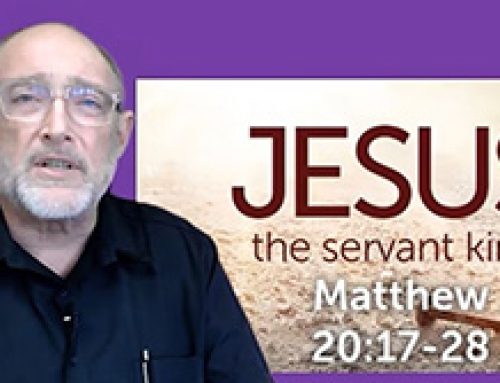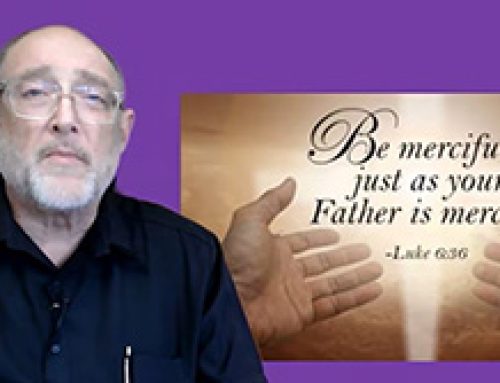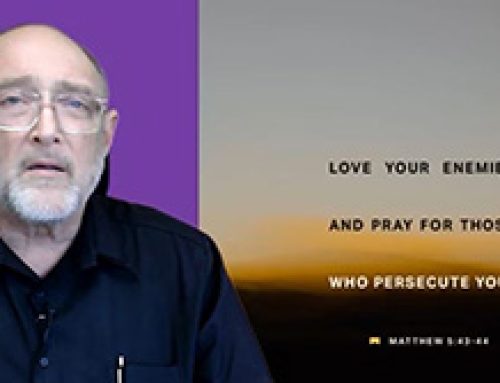Fr Paul Gooley reads today from the Gospel of Mark (12: 28-34) in which Jesus is asked which is the greatest commandment. The first, he says, is to love God with all your heart, soul and mind; and the second, not far behind, is to love your neighbour as yourself.
Fr Paul says the Pharisees have a bad name, but they really shouldn’t. They, among all the parties of the Jews, were concerned above all to live holy lives and to keep the traditions and the Covenant. The vices they are reproached for, having concern about minor details and rules such as pedantry and being fussy, and even hypocrisy, are occupational hazards of any group of people that try to do good. From ‘I am doing good’ to ‘I am good’ is a small step, and from ‘I am good’ to ‘anything is good if I do it’ is another small step. We often see it even today. As the saying goes, the best, corrupted, becomes the worst.
Thus, the most positive, you might even say the most intimate, contacts between Jesus and the Jewish establishment come when he is talking to a scribe or a Pharisee. Here is one of the best, and the most instructive. There is no suggestion in this Gospel that this Pharisee lawyer was trying to trick Jesus; he was just asking this teacher a typical Jewish question about priorities because he wanted to know the answer.
Jesus replies with an impeccable Rabbinic answer, bringing together two texts from different books of the Bible. In bringing them together he is using an acknowledged principle of exegesis: if two texts share the same words, they should be interpreted together. The two texts which Jesus uses are the only two in the Bible that have the words ‘and you shall love’ with a direct object.
The first, about love of God, is from the basic confession of faith in Deuteronomy, recited by every faithful Jew three times a day, ‘And you shall love the Lord your God with all your heart, mind and strength’.
But the exciting thing about the answer is that Jesus couples that with another text from Leviticus, ‘And you shall love your neighbour as yourself’. The command is not new, but it is staggering that Jesus puts it on a level with the other.
So, again and again Jesus shows his mastery of the scriptures, a more profound understanding, going straight to the heart of the major texts of the Bible.
Fr Paul invites us to consider, in Lent, how can I show my love of God and love of neighbour?






Leave A Comment